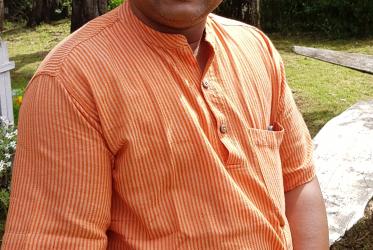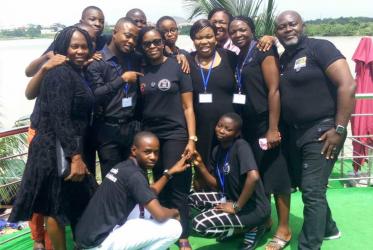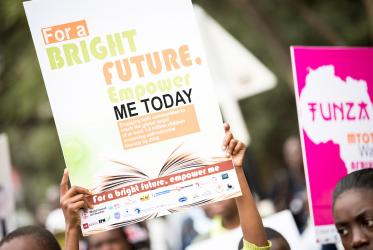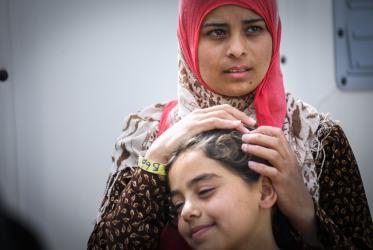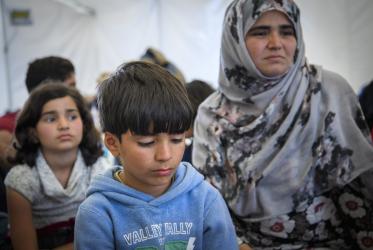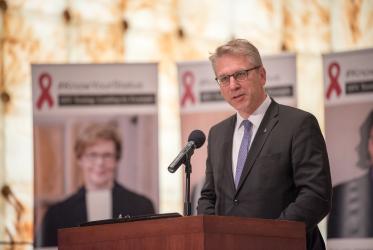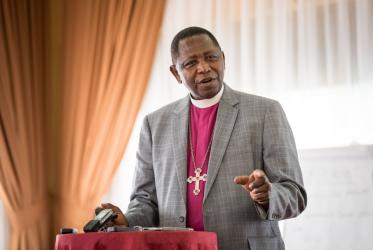Displaying 141 - 160 of 289
Dr Samuel George: “Ensure all are included"
12 June 2018
Congolese churches respond to Ebola outbreak
01 June 2018
“Arusha Call to Discipleship” issued
13 March 2018
Not just numbers, displaced people need to share their stories
01 February 2018
Christians in China warmly receive WCC delegation
12 January 2018
Conversation on HIV “must continue,” Faith Networking Zone shows
07 December 2017
Emily Welty: tide of hope for a world free from nuclear weapons
19 September 2017
“It will take faith to get down to business, to overcome HIV and AIDS”
13 September 2017
“Facing the storm of HIV, we can move together, be agents of change”
06 September 2017

